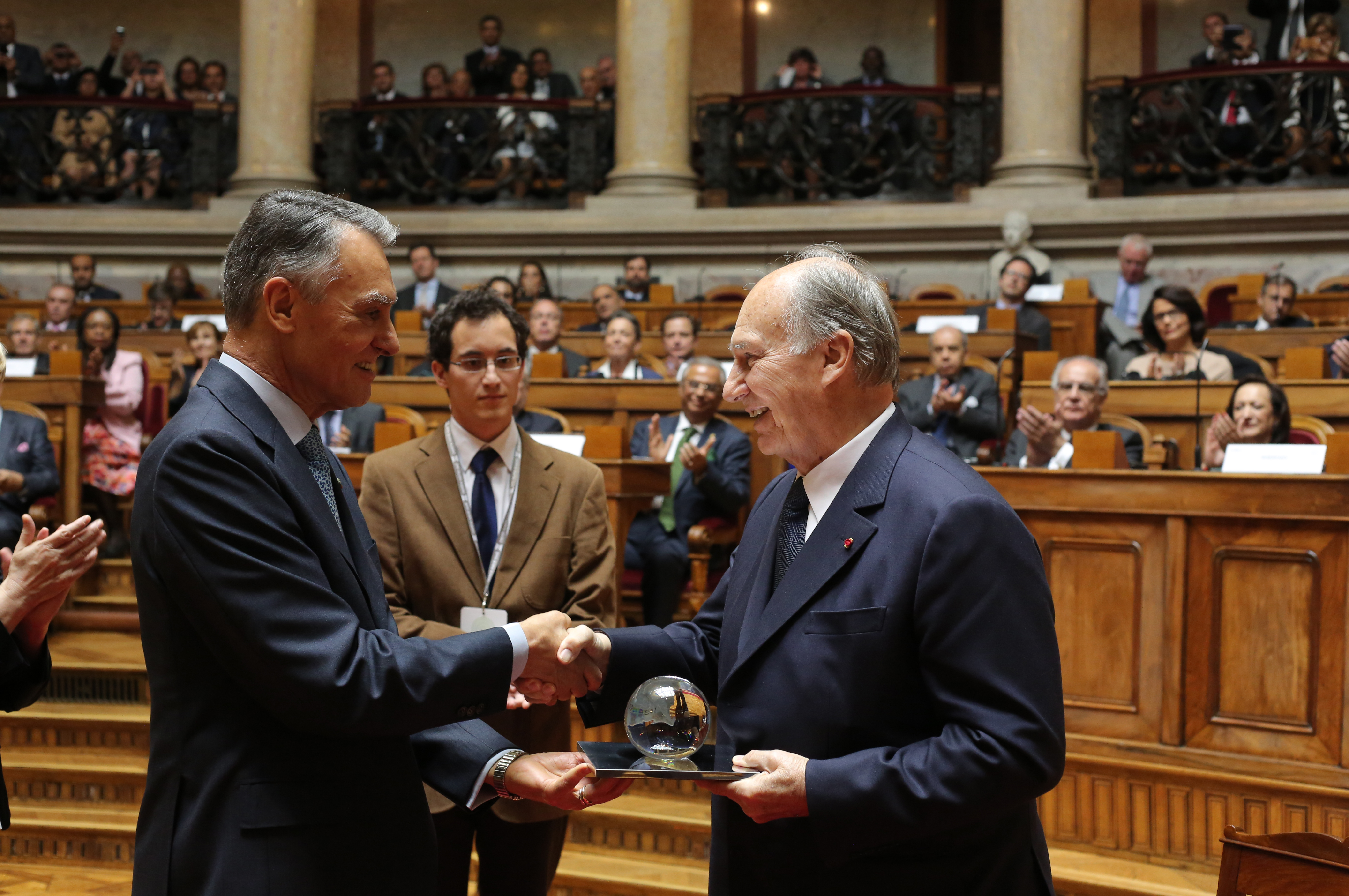Lisbon, 12 June 2014 – Mawlana Hazar Imam and human rights activist Suzanne Jabbour were awarded the Council of Europe's 2013 North-South Prize today. The prize was presented by the President of Portugal, His Excellency Aníbal Cavaco Silva, at a ceremony held in the Senate Hall of the Portuguese Parliament.
The prize names two laureates each year who exemplify a commitment to promoting North-South solidarity. Mawlana Hazar Imam was cited for his efforts towards furthering a more pluralistic society as well as his achievements in improving the quality of life of vulnerable populations through the work of the Aga Khan Development Network.
» EVENT: Mawlana Hazar Imam receives North-South Prize
» AKDN press release, remarks by Mawlana Hazar Imam and Suzanne Jabbour
» Discurso do Presidente da República
» VIDEO: Mawlana Hazar Imam in Portugal ahead of North-South prize ceremony
» Gallery: Mawlana Hazar Imam visits Portugal to receive North-South prize, AKDN photo gallery
“This prize has particular meaning because of those who organize it – the men and women of the North-South Centre of the Council of Europe, who contribute so much to advancing democratic citizenship in our world,” said Mawlana Hazar Imam. “The Aga Khan Development Network has been proud to join with the Centre in distinguished projects such as the annual Lisbon Forum held at the Ismaili Centre.”
Mawlana Hazar Imam also applauded the work of co-laureate Suzanne Jabbour, who has been a leader in the Middle East, Africa and Latin America in the fight for the humane treatment of prisoners. “Her dedication to those who are tortured is an example that inspires us all,” said the Imam.
The shared destiny of humanity on an ever-more crowded planet depends on people finding ways to work together, even when they are divided by difference, said Mawlana Hazar Imam. In promoting dialogue and understanding between peoples, institutions like the North-South Centre play an important role.
“Profound expressions about our common humanity are embedded in the world's great religious traditions, including my own,” said the Imam, “but now it is for us to re-articulate those traditions.” In a time when the technology to communicate with one another is so advanced, Hazar Imam said it was ironic that there should be such a growing social divergence.
“The lesson it seems to me is that technologies alone will not save us,” said Mawlana Hazar Imam, “the critical variable will always be and will always lie in the disposition of human hearts and minds.”







